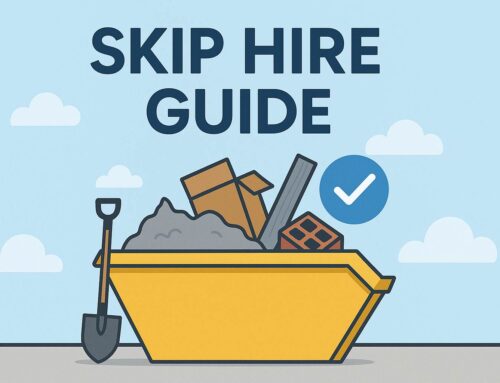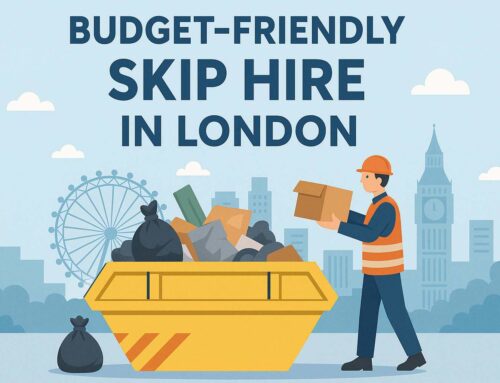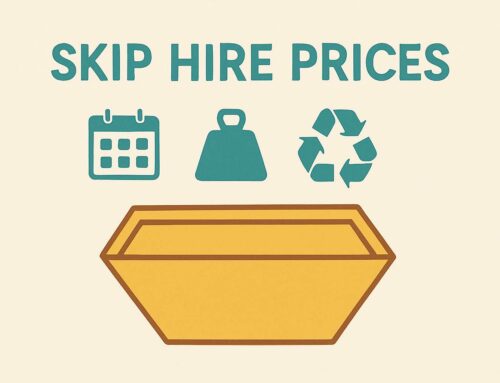Setting Up Your Home for Waste Segregation
One important thing you can do to help the earth and lower your carbon footprint is to learn how to sort your trash at home. Sorting your trash properly will help with recycling, cut down on the amount of trash that ends up in landfills, and make sure that dangerous items are thrown away safely. You can learn all about how to separate trash in this detailed guide from JN Skips. It covers everything from getting the right bins for your home to avoiding common mistakes.
Necessary Bins and Containers
You need the right bins and tubs set up in your home in order to sort your trash properly. In an ideal world, you would have different bins for trash, recyclables, hazardous waste, and other things. It is suggested that there be at least four bins, with clear labels on each one indicating its function. Smaller buckets can be used to collect trash inside, and the trash cans can be moved outside to bigger bins. For houses that need more space for sorted trash, JN Skips rents out Mini Skip Hire, so that larger amounts can be handled efficiently.
Labelling and Organising Bins
Labelling and planning your bins is important to make sorting your trash easier. Use signs that are clear and easy to read, and if you can, use bins that are colour-coded to quickly tell the difference between different types of trash. Put the bins in easy-to-reach places, like the kitchen, garage, or yard, so that everyone in the house will use them regularly. Having bins that are organised not only makes sorting things faster but also makes it easier to see which bin needs to be filled or cleaned. If you are looking for affordable Skip Hire prices, then contact us.
Step-by-Step Guide to Segregating Waste
Organic Waste
Food scraps, garden clippings, and other biodegradable items are all examples of organic waste. These should be put in a bin that is only for compost. Make sure the bin has good air flow to keep smells away and speed up the breakdown process. For food scraps, you might want to use a smaller kitchen waste bin with a lid to keep bugs and smells out. Move the stuff inside on a regular basis to a bigger outdoor trash bin or a green waste skip.
Recyclables
Plastics, metals, paper, and glass are all things that can be recycled. To keep them from getting mixed up, each of these things should be cleaned and put in its own pile. Rinse containers and take off any parts that can’t be recycled, like bottle caps made of plastic. Making cardboard and paper flat will save room. If your local recycling programme says so, you should sort glass by colour. If you rent a skip from JN Skips for same day Skip Hire, your gathered recyclables will be taken care of quickly and correctly.
Hazardous Waste
Batteries, electronics, chemicals, and medical waste are all examples of hazardous trash. To keep the world clean and people healthy, these things need to be handled in a certain way. Keep dangerous trash in a safe place, away from other types of trash. Talk to your city or town’s waste management service to find out where to bring your trash and when to do it. To make sure that environmental rules are followed, JN Skips can help you get rid of dangerous things in a safe way.
Miscellaneous Waste
Everything that doesn’t fit into one of the other categories is considered miscellaneous waste. This includes textiles, broken furniture, and other household things. Check each item to see if it can be given, used for something else, or thrown away. If you have big things that regular bin pickups can’t handle, you might want to hire a small skip. This makes it easy to get rid of big pieces of trash without having to make multiple trips to the local dump.
Common Mistakes to Avoid in Waste Segregation
One of the most common mistakes in sorting trash is contamination, which happens when things that can’t be recycled are mixed with things that can be recycled. This could mean that whole batches end up in a dump. People also often make the mistake of not cleaning their recyclables, which can bring in bugs and make the problem worse. Make sure that bins aren’t too full, as this can make moving them dangerous and difficult. Also, don’t put dangerous trash in regular trash cans to protect the earth and your health.
Educational Tools and Resources
Some tools and services can help you sort your trash properly. Apps like iRecycle and Recycle Coach tell you about recycling programmes and rules in your area. Websites like WRAP have a lot of information on how to recycle and reduce trash. Local governments often put information about when to collect trash and what kinds of trash are accepted in handouts and on their websites. Using these tools can help you sort your trash better and make sure you’re following the rules in your area.
Engaging the Community and Family
Getting your family and the community involved in environmentally friendly ways to deal with trash can make your efforts more effective. Teach family members why it’s important to separate trash and how to do it right. Hold workshops or campaigns to raise understanding in the community to help people learn and get people to work together. Environmental sustainability programmes are often run by schools and other local groups. These can help your projects by giving them extra support and resources.
Conclusion
Separating trash properly at home is an important way to protect the earth and cut down on trash. You can make a difference if you set up the right system, educate yourself and others, and use services like those given by JN Skips. Review and improve your waste separation methods on a regular basis to make sure they keep working well. Getting into these habits will not only help the earth, but they will also help your family develop a sense of responsibility and sustainability.
FAQ’s:
If you have waste that is hard to put into categories, you might want to look at your local council’s garbage management rules or get help from a professional service like JN Skips. They can give you advice on how to properly get rid of things and whether you need special services.
Regular cleaning of trash cans will keep them smelling fresh and keep pests away. As a general rule, clean the boxes inside once a week and the bins outside once a month. Liners can help keep bins cleaner for longer, which makes upkeep easier.




